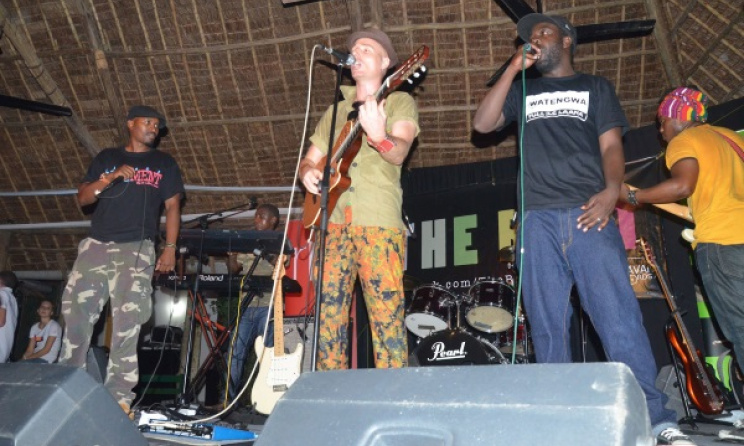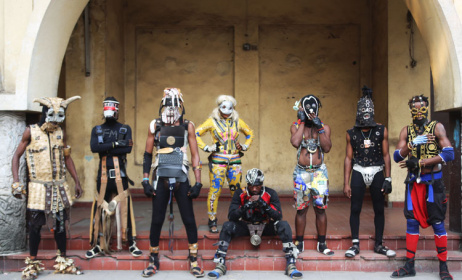Mzungu Kichaa embarks on tour of Scandinavia
Tanzanian-based Danish singer Espen Sorensen, better known as Mzungu Kichaa, will from 15 October embark on a series of unplugged concerts in Sweden and Denmark. Mzungu Kichaa, who has spent time living in Copenhagen, Dar es Salaam and London, embodies a blend of these various places, which has resulted in him becoming what he is today: one of the pioneers of East Africa's most popular fusion of traditional music and hip-hop - Bongo Flava.
 Chaba Thomas, Mzungu Kichaa and Jcb Mkalla at a past concert. Photo: www.tzaffairs.org
Chaba Thomas, Mzungu Kichaa and Jcb Mkalla at a past concert. Photo: www.tzaffairs.org
His tour kicks off at Sweden’s Carib Kreol in Malmo at 9pm local time. He will then head to Denmark, where the concerts will be staged at various venues. He will make stops at Huset Esbjerg, Marius Øltapper, Skanderborg and at the Friland, Rønde on the 16, 17 and 18 October respectively. The concerts will feature percussionist Salieu Dibba and guitarist Preben Carlsen. Thereafter he is expected to attend the annual five-day music industry event, WOMEX, which comprises a trade fair, showcase festival and conferences in Budapest, Hungary between 21 and 25 October.
Mzungu Kichaa's first album, Tuko Pamoja, was released in 2009, and was followed up by a tour of several East African and European concert venues and festivals. He is an advocate of Tanzania's contemporary music scene and aims to make Bongo Flava known across Tanzania's borders as he considers it music that ‘can open our minds and expand our horizons'. His lyrics are critical and thought provoking, contesting generalized and non-reflective images of what is happening in the world. His songs focus on social problems in Tanzania. For instance, the single ‘Jitolee’ off his 2009 album talks about development issues and was a hit in Tanzania and Kenya.
Recently, in June 2015, Mzungu Kichaa released the music video for the single 'Twajiachia' , a song that celebrates the journey of Tanzanian musicians on the global music scene. The song was recorded at Tao Studio in Hamburg, Germany together with German producer Flo Bauer during a joint tour by Mzungu Kichaa and Tanzanian ragga/dancehall artist Malfred at the end of 2014. The song is an example of the globalization of urban club music: an upbeat fusion between European electronic sounds, Bongo Flava and Jamaican dancehall.





























Commentaires
s'identifier or register to post comments